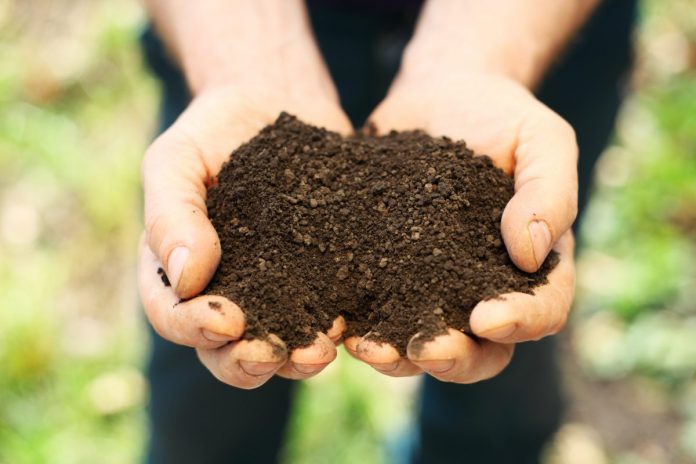Only put in what you want to get out: Clare McDermott, from the Soil Association describes how an organic system keeps it natural…
Organic is a term defined by law. Any food labelled as organic must meet a strict set of standards so even if produce has been grown organically, to organic standards, with organic principles in mind, it still needs to be certified organic by a registered body like the Soil Association Certification. To become certified, the farm or processor must be checked against a set of standards required under EU law, which must be met as a minimum. The standards, rigorously checked annually by an inspector, cover all aspects of food production, from animal welfare and wildlife conservation, to food processing and packaging. This robust certification process means you can be sure that organic products are the genuine article.
Organic certification also means that food is produced from farming systems that are working with nature, are kind to animals, avoid the use of pesticides and prohibit synthetic fertilisers and GM ingredients – and that these aspects are checked, inspected and monitored to keep in line with EU regulation. When processed foods are certified as organic it means that hydrogenated fats and controversial additives including aspartame, tartrazine and MSG are banned, keeping the food free from unneeded synthetic additives.
Driving the change
But ‘organic’ is more than just avoiding additives; organic agriculture is based on living ecological systems and cycles, and works with them to help sustain our environment. A big part of our work at the Soil Association involves working in the field with farmers to learn how we can make more natural changes.
So much of farming is pioneering and innovative, and programmes such as the Duchy Originals Future Farming programme helps discover more sustainable techniques to help us harness our natural resources, restore our soils and increase yield without wreaking havoc on our existing farming systems.
Over the last 50 years farming in the UK has had a huge impact on our wildlife and the consequences are barely understood. We have witnessed a sharp decline in biodiversity, however now we have clear evidence that wildlife is 50% more abundant on organic farms 1. By encouraging nature to inhabit the hedgerows around farmland, by rotating crops and by the knock on increase in wildlife, organic farmers can maintain soil fertility and keep pests under control without the use of fertilisers or pesticides.
Keeping it natural
Livestock is at the centre of organic practices – giving animals as natural a life as possible. Standards ensure they are able to fully express their innate behaviours by requiring that they are genuinely free-range. The aim is that every animal should have a truly good life and a humane end to it when the time comes. Animal feed is as natural as possible, which means no GM ingredients, and the routine use of drugs is not allowed. The Soil Association is one of the pioneers of an innovative animal welfare programme called AssureWel 2, providing a framework by which to measure animal behaviour to maintain the best possible environment for the animals.
Natural environment means natural products and we now have tangible evidence about the nutrient quality of organic food. The British Journal of Nutrition 3 published last year proves unequivocally that there are significant differences between organic and non-organic food. The study found that organic crops, such as fruit, vegetables, cereals, and crop-based foods are up to 60% higher in a number of key antioxidants than non-organic crops. The findings shatter the myth that how we farm does not affect the quality of the food we eat. Organic crops (cereals, fruit and vegetables) have significantly higher concentrations of antioxidants compared with non-organic produced counterparts. They also contain fewer pesticides, a staggering 48% less cadmium, the heavy metal that can remain in your body for up to 10 years, and less nitrogen.
Why choose organic?
There are many reasons people choose organic, a belief in better quality, a holistic approach to farming and animal welfare, or concern about our environment. The organic market is growing all over the world, and even though the UK trails behind the rest of Europe, our market is growing too – figures from the Organic Market Report 2014 show an increase of 2.5%, outperforming overall grocery sales, which were down 3.2% 4.
You can feel assured about the future of organic in 2015 with renewed pressure on the food and farming industries to reduce greenhouse gas emissions, new research on nutritional differences between organic and non-organic meat, and continued growth in the organic market world-wide. Overall we are positive that organic food and farming systems will continue to expand, indeed they must if we are to address the environmental and economic problems of our country.
1 Bengtsson, J., Ahnstrom, J. and Weibull A-C. (2005) ‘The effects of organic agriculture on biodiversity and abundance: a meta-analysis’ Journal of Applied Ecology, 42(2), 461-269
3 Source Information: “Higher antioxidant concentrations and less cadmium and pesticide residues in organically-grown crops: a systematic literature review and meta-analyses.” Baranski, M. et al. British Journal of Nutrition, July 15th 2014.
4 Nielsen Scantrack, Grocery Multiples Unit Growth, 4 weeks to 1st February 2014.
Clare McDermott
Soil Association











